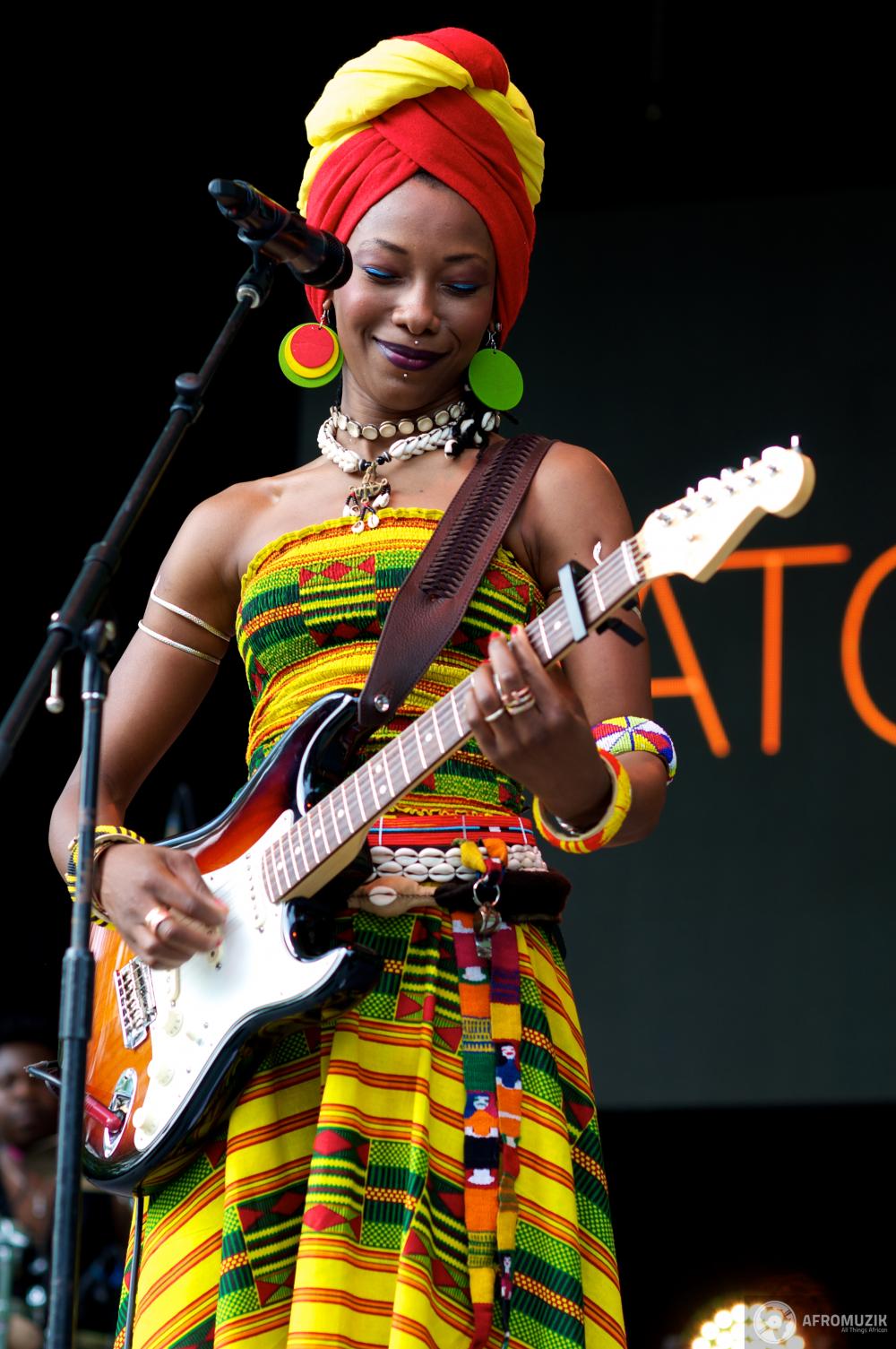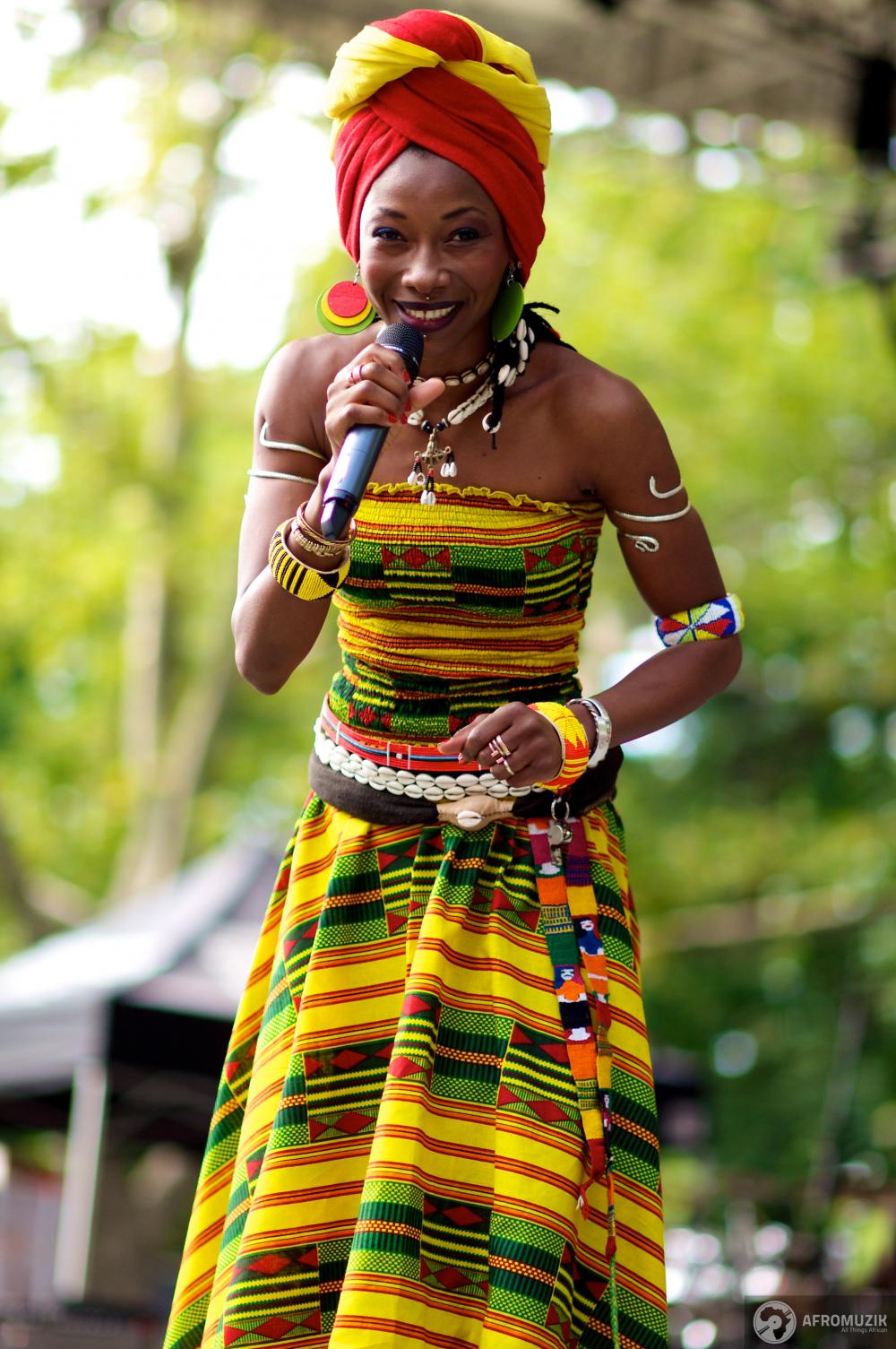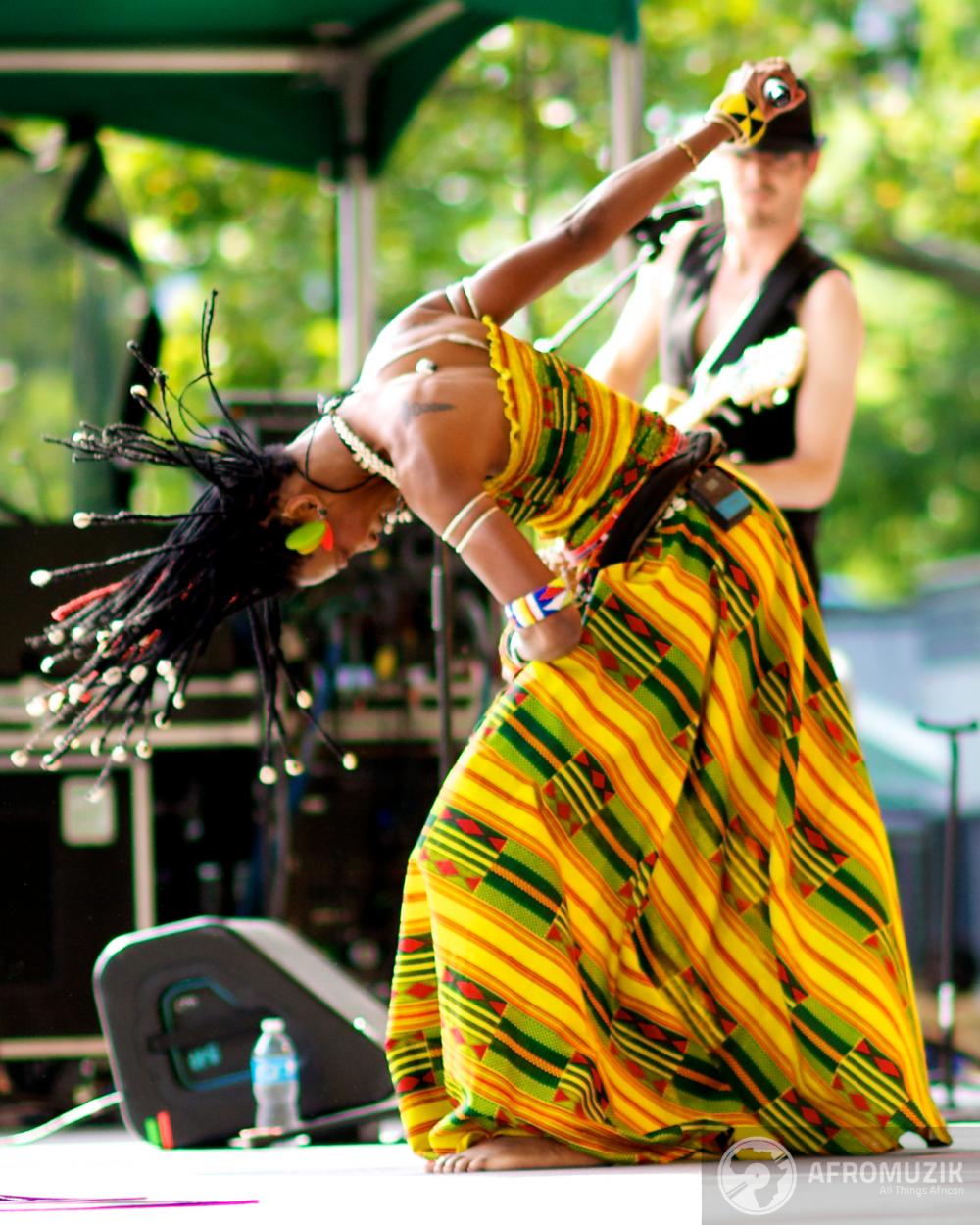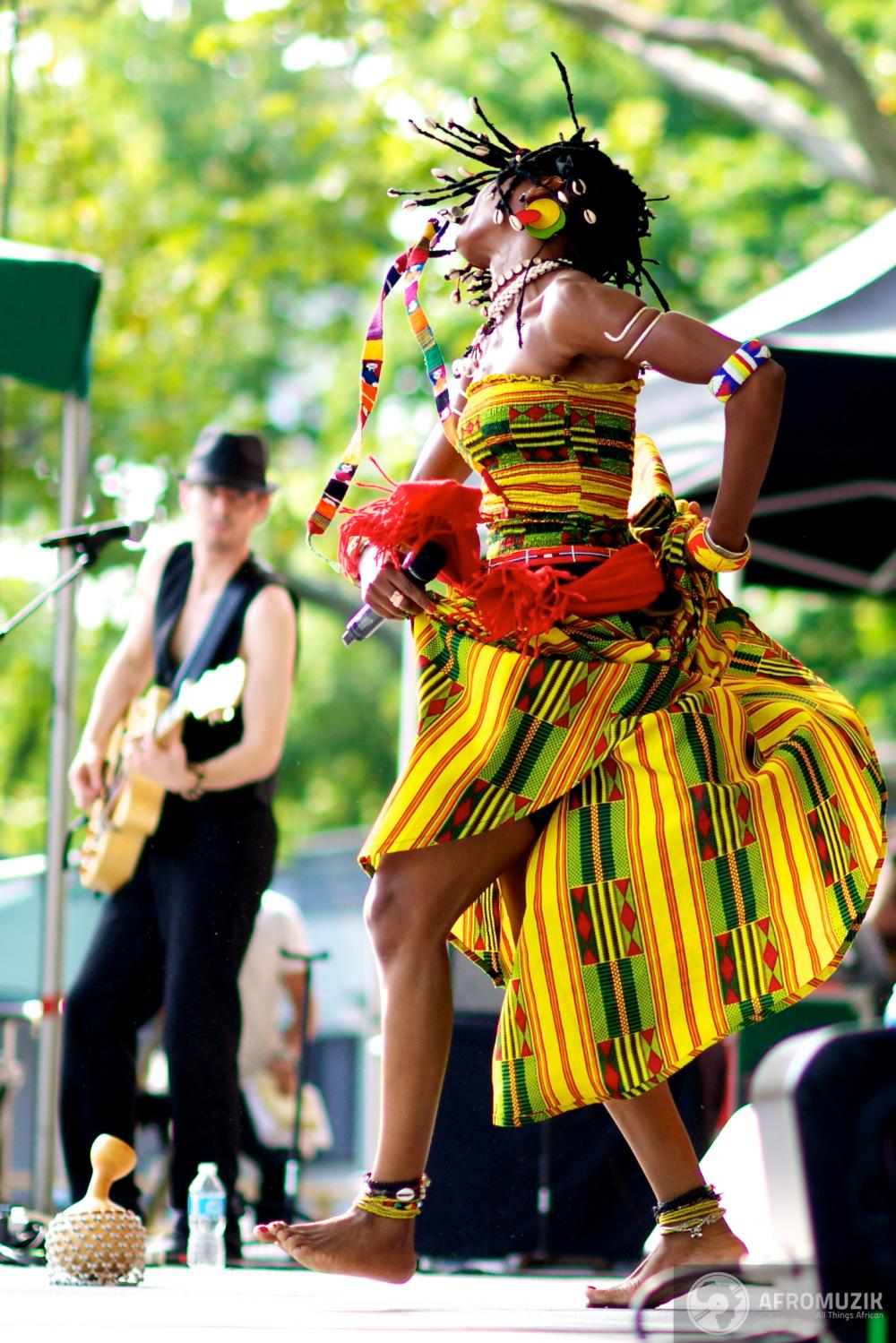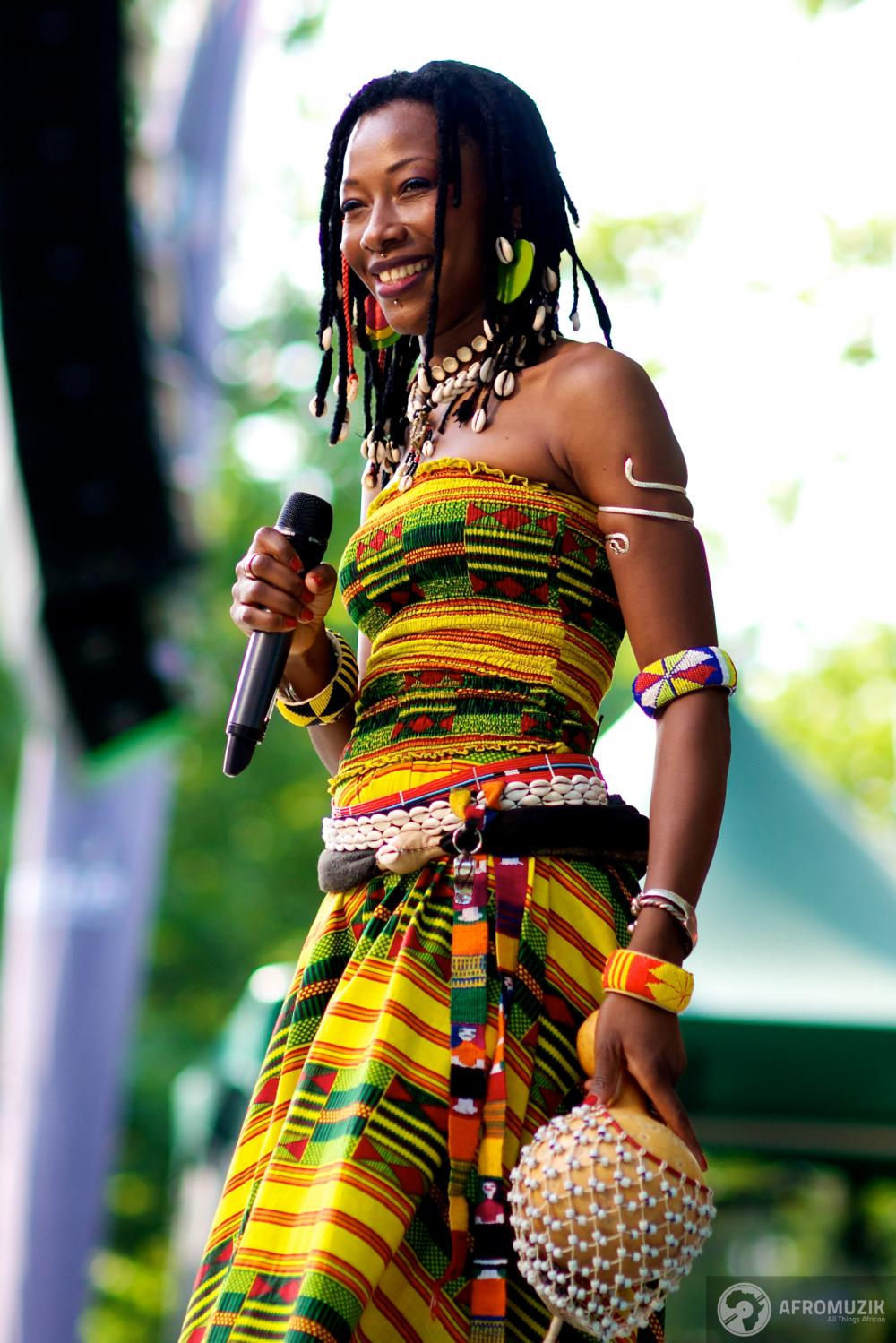Can you feel the heat? For the past couple of weeks, the heat wave made New Yorkers think twice about leaving the house. Wherever you were invited to, you thought to yourself: “Man, I hope there is air conditioning”. But when you are invited to a free outdoor concert under the hot blazing sun, your thoughts are: “Man, hope they are distributing free water bottles!”. At least that was my thought when I went to watch Fatoumata Diawara live at the BAM Rhythm and Blues Festival at Metrotech in Brooklyn, NY. Although I wasn’t familiar with her music, there were a number of people dancing and singing along. Very impressed with her performance, I wanted to see her live again.
On July 21st, 2013, AfroMuzik attended Central Park’s SummerStage where there was a huge turnout for the show. In spite of the week-long heat wave, New Yorkers were not afraid to come out and dance! With the opening act from Ethiopian music band Krar Collective, the sound of traditional "ululation" could be heard from all over the crowd. The audience clapped and observed as the band showed us how to dance to Ethiopian rhythm. After the performance there was an intermission during which DJ Sirak introduced singer Queen Sheba to the audience. She sang “Naked Girl Mud Wrestling”; a single from her upcoming mix tape Twerk Summer. Yes, she reminded the audience to twerk safely!
“Now, coming to the stage! Singer from Mali,
Africa: Fatoumata Diawara”! Adorned in wonderfully vibrant colors the singer gracefully walked on stage and started playing her
guitar. Backed up by her band, the audience clapped their hands, waiting
to hear her sing. “A furu don sera ale ko
a bè cè kelen kò …”, we -the audience- cheered. As she ended
the song, the beautiful singer hummed along with the instruments and explained that the song is called "Nayan" which, in her native language Bambara, means problem/endurance. The song talks about the problems faced by women face Mali when it comes to traditional norms, as well as the struggles that all women face within male dominated societies.
Fatoumata
smiled as she walked towards the audience, reaching out to them and singing. She constantly checked in with her fans saying “Are you ok?”, to which the response was consistently an enthusiastic “yeeeaahaah!”. She continued with music from her
albums Fatou and Kanou, performing songs such as: "Soncolo", "Sowa",
"Clandestin", "Kele", "Bissa", "Mon Afrique". The outspoken singer shared the powerful messages in her songs, during her performance of Clandestin for instance, Diawara spoke to the crowd saying that the African diaspora needs to come home and not linger/struggle
overseas due to lack of work and immigration setbacks. In her performance of "Mon Afrique" she sang about the need for development on the African continent, and with a similarly progressive essence the next song Bissa stressed the importance of women having freedom of choice.
It was interesting and inspiring to see how someone can
sing about issues like social justice and equality while keeping the crowd alive and cheerful. Switching gears with Alama, Diawara
delivered a combination of funk, rock, and traditional rhythm. Like a true rock star Diawara lost her head wrap, freeing her beaded locs, as she rocked her head back and forth. She began stomping her feet,
demanding the beat of the drums to go higher and higher! The strings of the
guitar moved quickly, Diawara kicked her leg in the air, and soon enough the excited audience felt her
energy and began to jump and dance.
With her Arms wide open, Diawara repeatedly twirled around on stage showing off a perfectly toned physique and the bright African print dress that was quite suited to her vibrant personality and stage presence. When she finally came to a stop, the playful singer yelled into the microphone saying “Aaaaaah”, to which the crowd responded appropriately with joyous yells of their own. Although she acknowledge the heat from scorching sun, Diawara kept the show going with choreography which she shared with the audience. She directed the crowd to wave their hands from left to right and then to wine their hips before yelling, “One, two, three…everybody go!”. The obliging crowd waved their hands from side to side while moving their hips to the rhythm. After the energetic performance, Diawara thanked the audience and waved as she walked off the stage. The crowd cheered for an encore which led the lovely singer to get back on stage. With "Salimata" as the last song of the spectacular performance, Diawara and her band bowed to the audience with their final thanks.
Fatoumata Diawara is a woman who is a
voice to many. Although she solely sings in her native language Bambara, her music has the rhythm to make you move, and the lyrics to educate
you. She sings about the difficulties in
her country and in other cultures. While such issues are not lighthearted, Diawara has chosen to use her voice and music to advocate for peace, social justice, and women's rights. She is able to share important messages while also sharing the joy of music. Fatoumata Diawara is an entertainer and an activist, and for that we love her, we respect her, and we look forward to more music from her.


